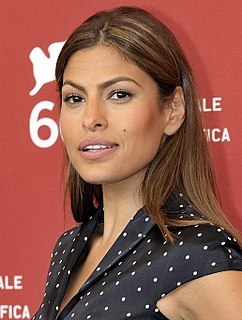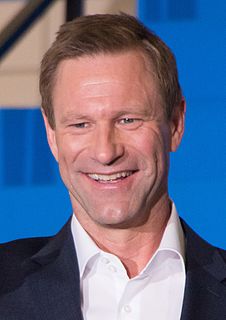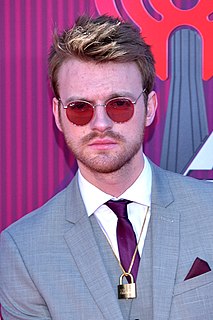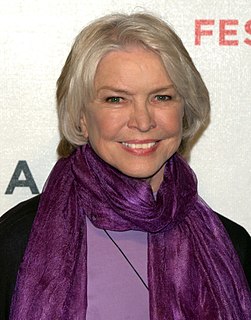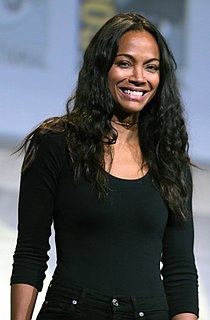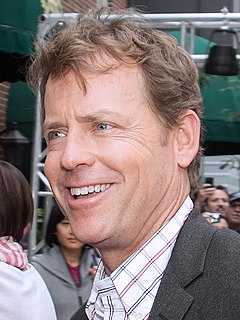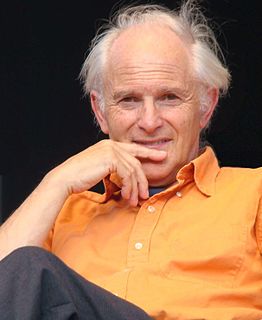A Quote by Eva Mendes
It's important for me to work with a strong director because I know I can go to some really deep places, I just need direction on how to get there.
Related Quotes
I don't think most people know how to meditate - they fall asleep and they call it meditation. I prefer a kind of sweet, deep, rich prayer in which a person goes in and says, Take me down deep into the reason you gave me life. Take me down deep. It silences the chaos in me. Take me away from my sense. I need to go away now, because I'm in chaos - take me down deep. Hover over me, because I need grace. I say that a lot, many times a day. So that's my practice.
I was an actor when I was a teenager and it could have been the direction that I headed in. But music and my relationship with music is quite deep, and it really is the nucleus of my creativity. So I gave up acting so I could pursue music fully, and I never thought about really going back. And then [director] Lee Daniels met me and wanted to work with me, and that's how it started.
You can't really get the full joy out of life unless you really go for it. You just have to go into it and stay under some kind of hope or illusion that it's going to work. But as you get older, or the more experiences you have, or whatever it is that tells you how this stuff works, you also know that if you go all the way into it, there's the risk of losing everything but you don't have a choice.
I feel like it's just so important for child and teenage development to have music in your life, honestly. And I just think it's really, really, really rewarding to me, personally, just emotionally, to know that I might have brought that into someone's life. And that just means a lot to me, because I know how important it can be.
Your actors need to trust you as a director, but normally, I think you just need to have an open communication between the actors and the director. I think the director needs to really paint his or her vision to the cast and let them know the kind of mood that he or she is making. I think that's very important.
I had a hole in my voice. It's an area in the voice where it's air. It's just - there's no - it's just very airy. And my classical teachers were just so frustrated with me because I would have these deep, low notes that were really strong, and the higher register was strong, but right in that middle area, it was really hard. It was like a passage. And many singers go through this and work it out. But I realized in jazz, I could just take advantage of that and take advantage of having a voice that was very different in different areas.
It's important for a director to provide as much information, especially when we're working with things that we have to conceive out of thin air. You can't just expect an actor to understand: 'Oh, there's a dinosaur coming at you". OK, so I'm going to automatically know how big it is and what it sounds like? I need details. How close does he get to me? How tall is he? What will the impact be of his cry when he's screaming at me or when he's blowing smoke or air in my face?
With a director it's all about the work; I'd work with a great director over - you know, I'm not the kind of actor who that doesn't go, 'I want to play this role.' It's more like, 'I want to work with this director,' regardless of what the role is because if it's a good director, you'll probably find a good role because it's a decent film. But a mediocre director will always make a mediocre movie.
You can be an idiot and survive because you just go to McDonalds for your food, and you go to work and do some sort of inane job, which is nobody taking any responsibility - it's always up the line - and then you watch the Super Bowl, and that's it. But in the old days, you really had to know how your world works. You don't need that anymore.
